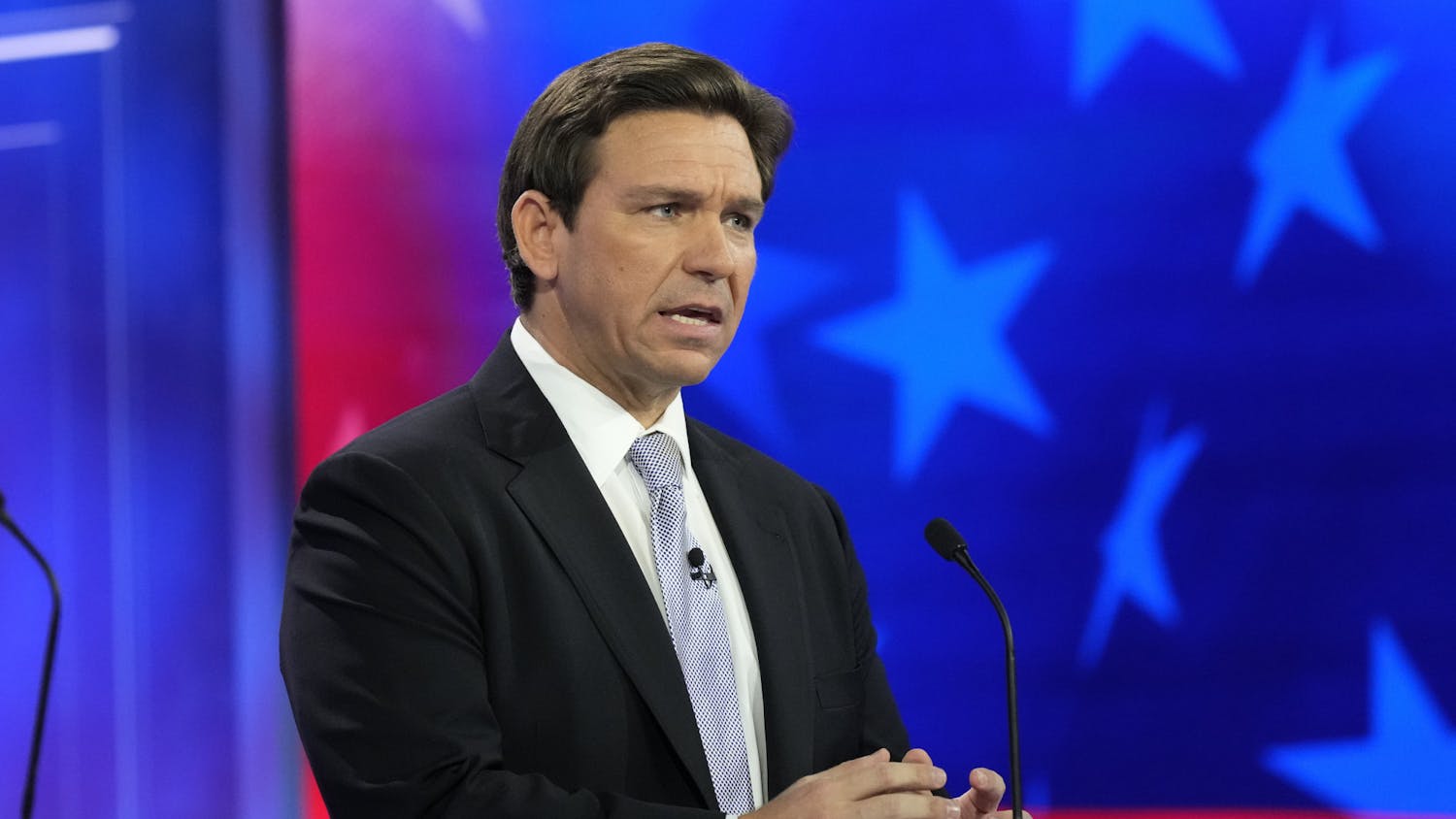Tonight, the next Republican debate will be held in Texas, marking the first time semi-rational candidates will be outnumbered by their knuckle-dragging counterparts. Gov. John Kasich, R-Ohio, and an ever more ideologically unrecognizable Sen. Marco Rubio, R-Fla., will be on the stage with a real estate mogul, an unhinged brain surgeon and a Canadian constitutional lawyer. While this may sound like the setup to a bad joke, it is actually the alarming state of American politics.
2016 will be remembered as the year American politics became almost inseparable from a reality TV show. Candidates with no discernable experience in government have attempted to persuade large swaths of the American people they are fit to lead this country, and for the most part, they’re winning. Although Ben Carson’s campaign is on life support and won’t be able to weather too many more losses before it collapses, he still outlasted Jeb Bush.
This election has become one of entertainment over substance. The dryness of debates has now become prime time real estate for network news, as they are now aware they can actually get viewers. This can be seen in the debate format with the South Carolina debate looking more like a Comedy Central Roast than a thoughtful exchange of ideas between potential leaders of the U.S. Although the two were never completely separated, with characters like Donald Trump of “The Apprentice” fame, the line between politicians and reality stars is rapidly becoming non-existent.
As we all know, the reality stars we love to watch the most are the ones we love to loathe as well. The proverbial Snooki of this metaphor, Donald Trump is arguably the most adept at this. Trump’s made a meme of himself since he entered public media consumption, whether that meant appearing on WWE or having his own Comedy Central Roast. He only got into politics when President Obama was elected, at which point he started asking for a birth certificate over Twitter — you know, like all rational, professional “politicians” do.
Trump thrives on his demagoguery, using it as a shield against any actual inquiries on whether he actually understands an issue, be it domestic or international. At any point Trump finds that he is no longer the main focus of the news cycle, he makes another controversial statement, with the most recent as of writing being the retelling of a fictional story about Gen. John J. Pershing and bullets dipped in pig’s blood.
The worst part of all of this is that it works. The Donald has gotten what only someone who plasters their name on buildings wants: attention. Any news is good news in the world of Trump.
During debates, Trump is rarely asked substantial questions on important issues, and when he is, he answers with the timbre of a high schooler trying to reach the minimum word count on an essay: a lot of fluff, but no substance.
Boldness is nothing new for American leaders, but their boldness was usually accompanied by genuine wit and intelligence. Boldness used to complement intelligent policy, but now, the end goal of boldness seems to be solely to show you are a bolder, bigger “man” on campus than anybody else running.
Trump’s bravado, especially concerning foreign policy, is frightening. Donald Trump paints the Mexican government as though it is on par with China as one of America’s biggest geopolitical threats; while the Mexican government contends with Mexico’s ongoing power struggle with drug cartels, he’ll be sure to make the country pay for a wall. ISIS would easily be dealt with if only we dropped more bombs, and Vladimir Putin will quickly become the U.S.’ best friend and ally because he and Trump were on the same episode of “60 Minutes.” Trump’s candidacy and foreign policy is unfolding like a Michael Bay movie: The only problem is, the American people really like watching Michael Bay movies.
Kevin Foster is a UF political science senior. His column appears on Thursdays.




